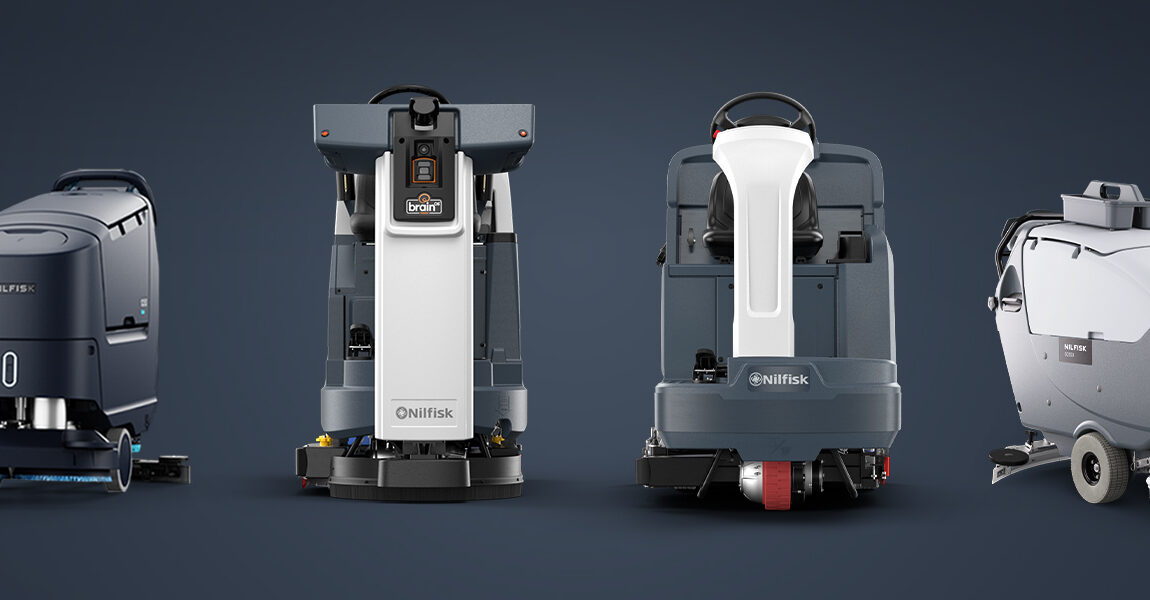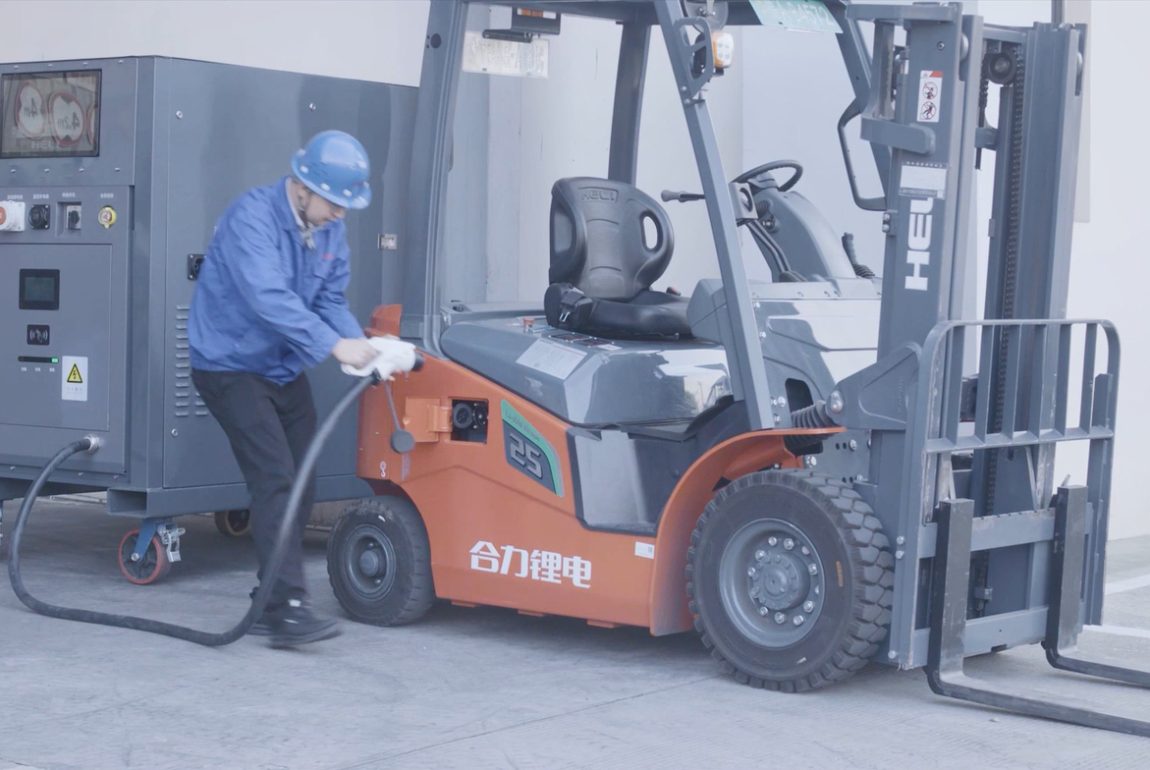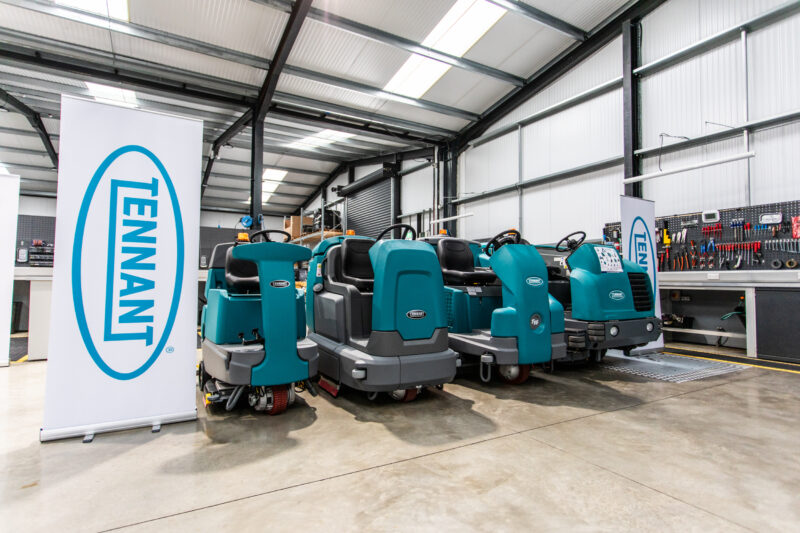
Lithium-ion batteries have revolutionized the forklift industry, offering a cleaner, more efficient, and longer-lasting alternative to traditional lead-acid batteries. However, like any power source, they require proper handling and care to ensure safety and maximize performance. Here’s a comprehensive guide to using and maintaining lithium forklift batteries effectively:
Safety Precautions:
- Wear Personal Protective Equipment (PPE): Always wear protective gear, including gloves, safety goggles, and an apron, when handling lithium batteries. This shields you from potential electrolyte leaks or sparks.
- Handle with Care: Treat batteries with utmost care, avoiding bumps, drops, or physical damage. Internal damage can lead to safety hazards and reduced battery life.
- Prevent Short Circuits: Never connect positive and negative terminals directly. Short circuits can cause overheating, fires, and even explosions.
- Use Approved Chargers: Only use chargers specifically designed for lithium forklift batteries. Improper charging can damage the battery and pose safety risks.
- Ventilate Charging Areas: Ensure adequate ventilation during charging to prevent the buildup of hydrogen gas, which is flammable.
- Monitor Temperature: Avoid extreme temperatures, both during operation and storage. Keep batteries within the manufacturer’s recommended temperature range to prevent performance loss and safety issues.
- Seek Professional Assistance: For any major repairs or maintenance, consult trained and certified technicians to avoid potential hazards.
Maintenance Tips:
- Regular Inspections: Conduct regular inspections to check for signs of damage, corrosion, or leaks. Promptly address any issues to prevent further damage and safety concerns.
- Cleanliness: Keep the battery compartment and terminals clean and dry. Moisture and dirt can lead to corrosion and electrical problems.
- Balance Charging: Use a battery management system (BMS) to balance charging, ensuring all cells receive equal charge distribution, prolonging battery life.
- Proper Storage: Store batteries in a cool, dry, and well-ventilated area when not in use. Avoid direct sunlight and extreme temperatures.
- Follow Manufacturer’s Guidelines: Adhere to the manufacturer’s specific instructions for charging, maintenance, and disposal of lithium forklift batteries.
Maximizing Battery Life and Efficiency:
- Avoid Deep Discharges: Deep discharges can significantly shorten battery life. Avoid running the battery completely down before recharging.
- Optimize Charging Cycles: Charge batteries when they reach 50% or lower for optimal performance and longevity. Avoid overcharging.
- Monitor Battery Health: Use battery monitoring systems to track battery health, including voltage, temperature, and capacity. Identify potential issues early on.
- Preventive Maintenance: Implement a preventive maintenance program that includes regular inspections, cleaning, and balancing to keep batteries in top condition.
- Upgrade When Necessary: As battery technology advances, consider upgrading to newer, more efficient models to improve performance and reduce operating costs.
By following these safety precautions and maintenance tips, you can extend the lifespan of your lithium forklift batteries, enhance their performance, and ensure a safe and productive work environment. Remember, proper battery care is an investment that pays off in the long run.
Author Profile

- https://tawk.to/chat/6228c78d1ffac05b1d7dc569/1ftnkn0nk
- SpiderWay LiFePO4 battery sales engineer with ten years of experience in industrial vehicle batteries, ready to answer any questions you may have about industrial LiFePO4 battery products.
Latest entries
BetcoNovember 16, 2024Electric Floor Cleaners Cleaning Machines LFP Power Lithium Battery OEM Manufacturer Recommendations
Battery Charger KnowledgeNovember 16, 2024LFP (LiFePO4) Battery Charger Supplier from China: The Ultimate Solution for EV and Renewable Energy Applications
Industry NewsNovember 15, 2024China ESS Energy Storage Battery Manufacturers: Industry Development Data and Future Market Trends
Cleaning MachinesNovember 15, 2024Global Leading Cleaning Machines Brands & LFP Lithium Battery Solutions: Powering the Future of Cleaning Technology





